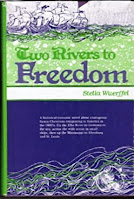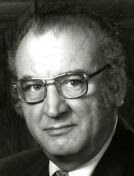Dr. Martin Luther. Portrait of the Reformer's Life to Fellow Believers in America Drawn by A. L. Gräbner. Milwaukee, Wisc. Published by Geo. Brumder. 1883.
Legion is the name of the Luther jubilee writings that have already appeared this year. Among them, the descriptions of Luther's life undoubtedly take the first place. The really good ones of these Luther biographies are, however, unfortunately, only a very small number. Apart from those in which a thoroughly false picture of Luther is sketched, many of the better ones also contain nasty stains that spoil the beautiful picture sketched. This is not the case with the picture of Luther which our dear friend and brother Gräbner, professor of theology at the seminary of the Wisconsin Synod in Milwaukee, has "drawn for the fellow believers in America. Among the few good ones, the same is indisputably the best, not only from this year, but also from this century. It is true that, as he himself openly admits at the beginning of his work, he has consulted and used in his work what has been written before him about Luther's life, namely the relevant work of the United [Prussian Union] professor Dr. [Julius] Köstlin, which is mostly based on thorough source studies; however, as not only Prof. Gräbner testifies, but as the comparison irrefutably shows, this has always been done “with the preservation of an independent judgment”. In short, whoever wishes to have a new, more detailed Luther biography, which presents the true Luther correctly in all aspects, we can only recommend Gräbner's biography urgently. The research of many only now discovered documents has spread a light over many things concerning Luther, over which a certain darkness was hovering until now. Therefore, the work of Gräbner is not dispensable by any older writing of this kind. May therefore the stupendous faithful diligence with which it has been worked out find its richly deserved reward at least in the fact that many hands reach for it and many hearts are strengthened by it in the faith in the truth which God, through His chosen armament, drew Luther out of God's Word into the light again four and a half hundred years ago. May especially all Lutherans within our orthodox Synodal Conference, from whose midst the work has sprung by God's grace, recognize and faithfully use the gift that He has given them above all. The publisher has delivered more than he promised. He had promised the completion of the work only for the month of October; but to our great joy, it is already available in its entirety, and, worthy of the excellent content, excellently equipped, both in terms of type, paper and binding. Forty-eight beautiful illustrations adorn the text. With a volume of 543 pages, the price of $2.50 is a very modest one. May the Lord Himself make way for the book to find entrance into many Lutheran homes and to bestow the richest blessings for time and eternity. W. [Walther]

%20cropped.jpg)
















